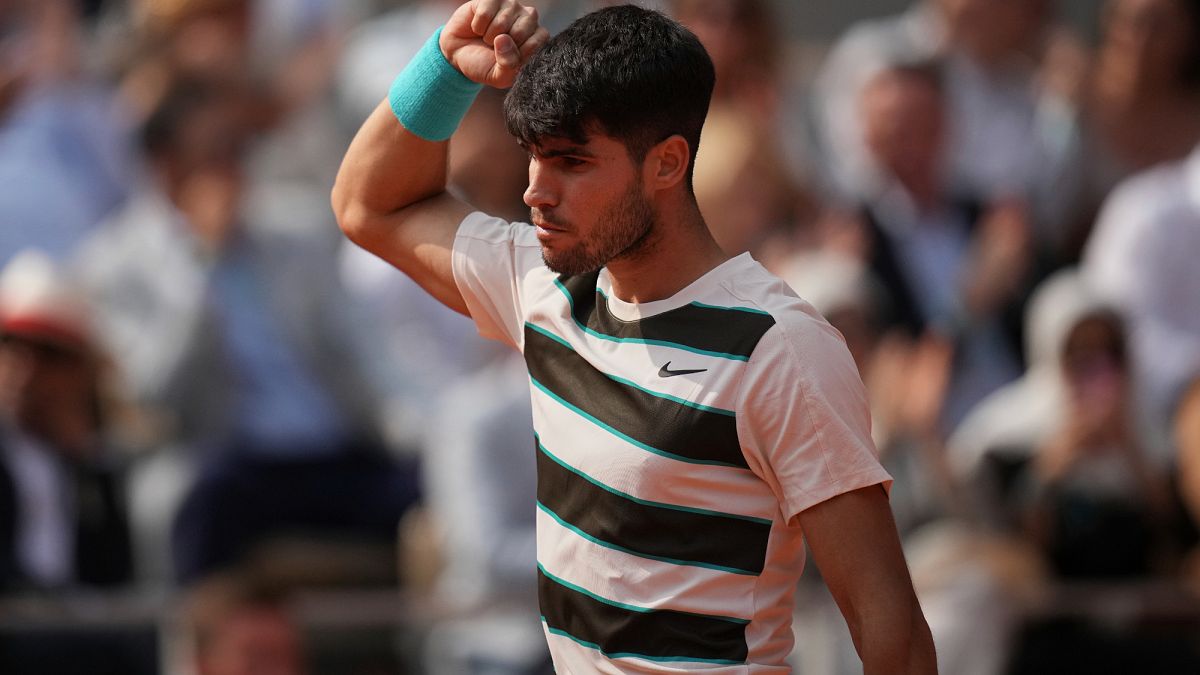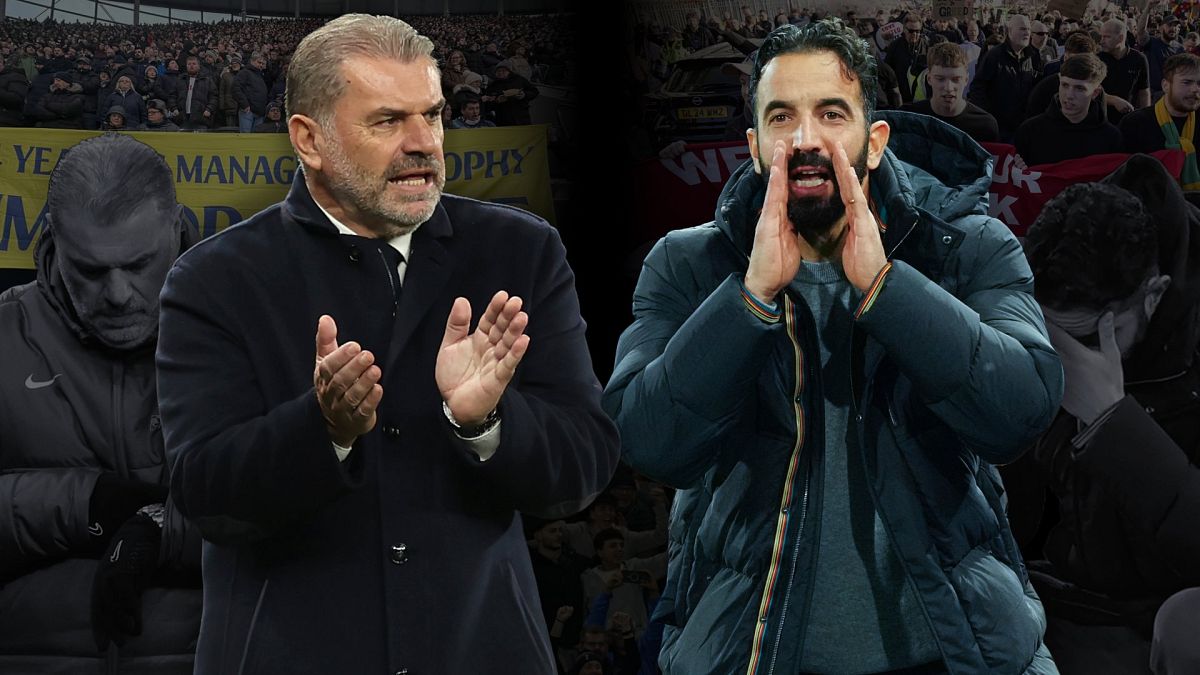Future generations must be given a seat at the EU table

The opinions expressed in this article are those of the author and do not represent in any way the editorial position of Euronews.
The EU needs a European Commissioner for Future Generations in its next college to enshrine long-term thinking and act as a guardian and conduit for future generations’ interests, Alberto Alemanno and Elizabeth Dirth write.
At its origin, the European Union was conceived as a long-term project. Yet as it approaches the end of another five-year term, the structures of the EU are jeopardising its ability to deliver on its long-term promise.
Now is the moment to think creatively about the next five-year cycle. Many reform ideas have been floated but so far not one that addresses directly the persistent deprioritisation of long-term interests.
Former Italian Prime Minister Mario Monti often dubbed the EU the “trade union” which defends the interests of future generations.
But, despite its history of decades-long work towards integration, and its forward-looking ambition to achieve net zero by 2050, the EU lacks an institutional framework that truly prioritises the livelihoods of future generations.
Strategies and policymaking horizons do not extend beyond mid-century, thus discriminating based on date of birth.
We need to look no further than diminishing support for environmental protection policies to have reason to question whether the right institutional setting exists to enable truly forward-thinking.
An inconvenient truth reveals itself
Take the European Green Deal: it was unveiled as a pivotal “man on the moon” moment for the future of Europe. Now it is increasingly becoming a scapegoat for social ills.
Political short-sightedness was already undermining some key Green Deal policies before it was further stalled by the early departure of the deal’s chief, Frans Timmermans.
This meant that at the most critical time for this package’s adoption, the European Commission had to rearrange the portfolio of another commissioner, Maroš Šefčovič, and appoint a brand new one with questionable green credentials, Wopke Hoekstra, as Green Deal stewards.
Their eleventh-hour appointment, at a time when climate and environment protection is facing pushback, reveals an inconvenient truth. Neither policymakers nor political leaders are accountable for failing to think and act long-term.
The European Union, and its 27 member states, are no exception to the tendency to neglect the long-term.
What is needed is an institutional representative to genuinely look out for the future. The EU needs a European Commissioner for Future Generations in its next college.
Future generations have no representation
In an age of polycrisis, when many decisions are taken under immense pressure, enshrining future thinking in the institutional architecture can improve decision-making.
More critically, it can help make sure that decisions taken in crisis conditions don’t have long-term negative ramifications.
Every day, decisions, policies and investments are made that will shape the future for generations to come. However, in today’s EU decision-making processes, future generations have no rights or representation.
This is set to get worse before it gets better as Europe is an ageing continent. By 2050, the share of people over 55 in the total population will rise from just under 30% to just over 40%.
Youth movements have played an important role in bringing the voice of future generations into the mainstream on climate. But future thinking needs to be institutionalised, across all policy areas and all aspects of policy.
Take the pan-European challenge of intergenerational socio-economic deprivation, which persists at both a national and regional level.
Research shows that childhood poverty increases the risk of poverty in adulthood. In parallel, a study from the IMF has shown that childhood poverty has increased by almost 20% in the EU since the beginning of the COVID-19 pandemic.
This is just one example of many across all aspects of society, from investment in climate measures to social services to intergenerational poverty, of how a long-term perspective is needed to truly solve the challenges we face today.
Strategic foresight and guardian of interests
So, what would a Future Generations Commissioner (or even better, Vice-President) actually do?
This Commissioner would first act as chief “foresighter” — leading a team of experts trusted to provide their views on the European Commission’s political priorities, annual legislative programmes and impact assessments.
It would also be, by design, a collaborator working across departments; and a chief listener charged with channelling citizens’ long-term concerns.
We imagine two priorities for this role.
First, it would embed strategic foresight into policymaking. Strategic foresight work has been a key area of development in the European Commission since 2019.
Since then we’ve seen an internal foresight network and annual reports to advise policymaking. This new post would embed strategic foresight into institutional processes and review proposals for their future fitness.
Second, the new commissioner would act as a guardian and conduit for future generations’ interests across the union.
For this, it would be open to direct input from citizens and organisations concerned about the long-term implications of EU actions and inactions. In this role, it might potentially renew the EU’s vision of the future of Europe.
In so doing, it would embrace citizen participation processes, such as visioning, and deliberative processes, like citizens assemblies, or other futuring techniques, to ensure a planned transition towards that future.
The foundations are already there
The good news is, there are many national examples that the EU can learn from, whether it be within Europe — Finland and Wales have dedicated future generations bodies — or outside Europe, for example, Canada and Uruguay. Discussions on such a mandate are active at the UN level.
Even at the EU level, Commissioner Šefčovič has already been convening a Ministers of the Future meeting. The foundations for a new commission portfolio are already being laid.
It’s time to create the institutional architecture to make the “trade union” for future generations a reality. It’s time for a Commissioner for Future Generations.
Alberto Alemanno is the Jean Monnet Professor of European Union Law at HEC Paris and founder of The Good Lobby, and Elizabeth Dirth is Development Director at the ZOE Institute for Future-fit Economies.
At Euronews, we believe all views matter. Contact us at [email protected] to send pitches or submissions and be part of the conversation.
Source: Euro News














